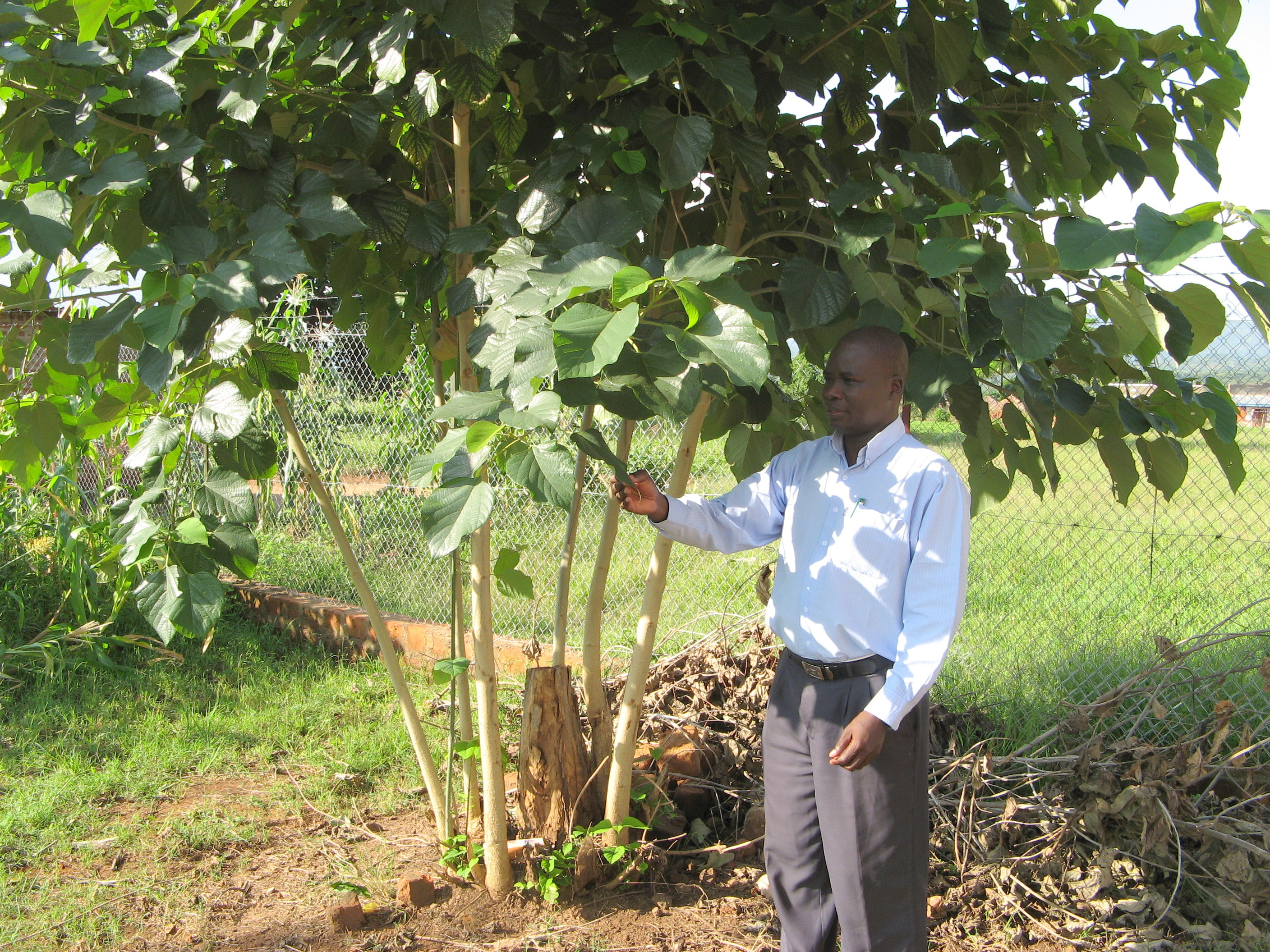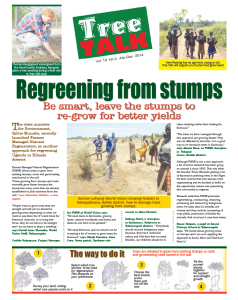
Uganda prepares to roll out FMNR
February 3, 2015
Last year’s Uganda National FMNR Conference “Re-Greening Landscapes” – organised within the context of the FMNR for East Africa project – has lighted a sparkle for green regrowth in many of its participants. In fact, following the July event, some NGOs and farmer associations were so inspired by the FMNR benefits that they started training their staff and piloting the model. To maintain the momentum World Vision Uganda is working with other organisations to set up a national FMNR network. The task force steering the process includes local government bodies, implementing agencies, research institutes and farmers’ associations. They meet once a month and have started developing a five year strategy and work plan to roll out FMNR nationally. More details to come soon!
Tree Talk Plus is another organisation that participated in the conference last year and was equally impressed by the potential of Farmer Managed Natural Regeneration. After the conference, they decided to dedicate their July-December 2014 issue to FMNR. Using their own resources, they visited the field to compile stories about FMNR and produced 200,000 hard copies of their newsletter to be distributed through one of Uganda’s leading daily news papers New Vision.
is another organisation that participated in the conference last year and was equally impressed by the potential of Farmer Managed Natural Regeneration. After the conference, they decided to dedicate their July-December 2014 issue to FMNR. Using their own resources, they visited the field to compile stories about FMNR and produced 200,000 hard copies of their newsletter to be distributed through one of Uganda’s leading daily news papers New Vision.
Download Tree Talk newsletter below.
“The state minister for Environment, Sylvia Munaba, recently launched Farmer Managed Natural Regeneration as another approach for regreening Uganda in Kibaale district.” (p.1)
“When people saw me prunning the trees, they started respecting them and my land. I focused more on indigenous trees. Select trees based on how useful they are to you. For example I retained the Oli tree because it is medicinal to my goats.” (Buzu Fred Bayo – farmer, p.2)
“Anguyo has increased his animals from 25 goats to 70 goats and 30 herds of cattle to 90 because of the pastures that resulted from practicing FMNR.” (p.2)
“FMNR is a form of evergreen agriculture, as trees are maintained on the farmland which prevents soil exhaustion by providing the soil with a constant cover.” (p.3)
“When I won a prize during the school debate on the importance of trees, it was a motivation for my parents to start liking trees” (Rasur Abujere – pupil at Kasozi PS in Nakasongola district, p.4)

